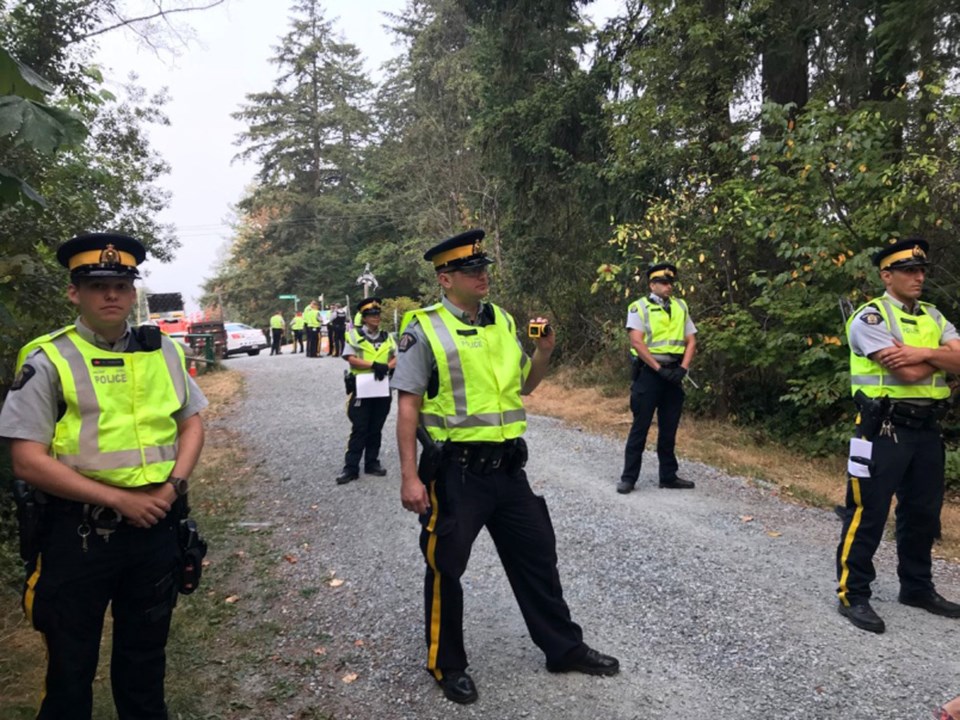Camp Cloud is now in ruins, with City of Burnaby crews cleaning up the remnants of a place people used to call home.
Since last Friday’s ruling by B.C. Supreme Court Justice Geoffrey Gomery, the city and police worked on a plan that would somehow remove the people who haven’t abided by the court order to leave without creating an international incident.
Police swooped in during the early hours of Thursday morning, and they were almost able to arrest everyone without the media seeing it.
Almost.
The NOW, however, was on scene to witness it - one of only two media outlets to be there. You can view our video at here.
The city, which has been a staunch opponent of the Trans Mountain pipeline project, was in a delicate position of having to evict people who are also against the pipeline.
The last thing it wanted to do is have self-proclaimed water protectors carried screaming into the back of police vans while the world watched – especially when an election is only two months away. (Yes, we know Mayor Derek Corrigan has taken great pains to distance himself from all of this and put the onus of the decision on city staff, but it’s doubtful voters will buy that. And it may actually work to his advantage for those voters who hate Camp Cloud.)
How we got to this point is a matter of heated debate.
After the eviction notice was served on July 18, it seemed like a meeting between the city and Camp Cloud would happen, and perhaps a compromise could’ve been reached. But then it was postponed, with Camp Cloud representatives saying they wanted it on “neutral” ground instead of city hall. It’s a fine sentiment, but hardly a great strategic move.
Speaking of strategy, Camp Cloud residents miscalculated what the city was prepared to put up with. For several months, the city heard nearby residents complain about the camp being an eyesore and impacting their lives. Some even submitted a petition. The city seemed willing to let the camp stay but was making efforts to get the camp to comply with its bylaws.
The issue of the “sacred fire” became especially contentious as the rain disappeared and fire conditions became more dangerous.
But, once again, the camp’s residents refused to budge on that issue despite the potential risks.
Then came the “carver’s cabin.” This two-storey wood structure that included glass windows and roofing was a fine piece of craftsmanship, but for area neighbours it was alarming.
Things went from being a tent city to a protest condo development.
The NOW noticed a swift uptick in letters to the editor about the new structure. Residents feared the camp would never be gone.
The pressure on city hall intensified.
This structure – along with an incident involving a fire official that was alleged in court by the city as being “on the edge of violence” – seemed to be the tipping point because the eviction notice followed not long after its construction.
As much as we admired Camp Cloud’s goal and the passion of some of its residents, it grew so big we’re not surprised the city finally said “enough.” And now some of its residents are left scrambling to figure out where they will live next.



